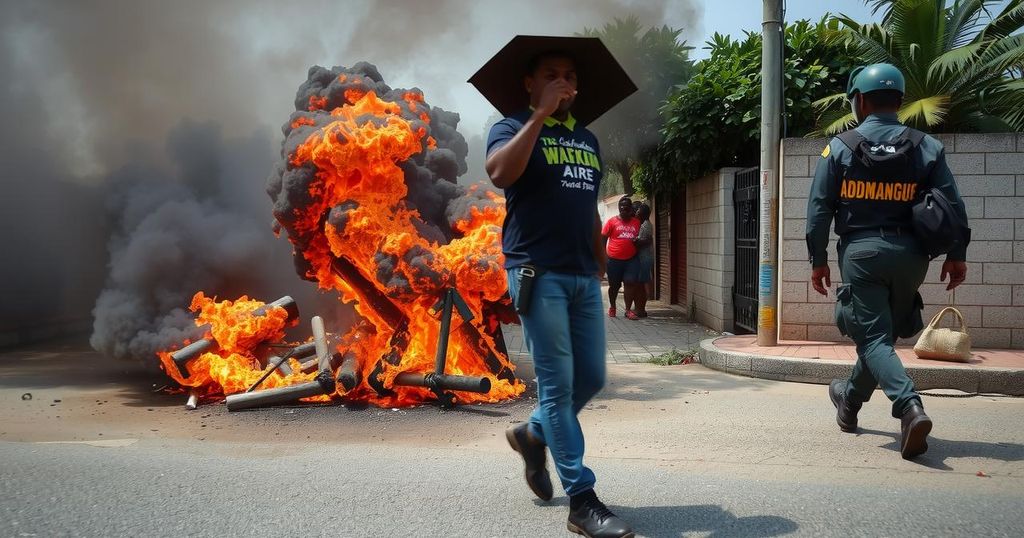Post-Election Violence in Mozambique Claims Over 21 Lives Amidst Unrest

Violence erupted in Mozambique following the confirmation of the Frelimo party’s election victory, resulting in at least 21 deaths, including two police officers. Interior Minister Pascoal Ronda reported significant unrest, with 236 acts of violence leading to numerous injuries. Opposition leader Venancio Mondlane claimed electoral fraud, calling for continued protests, while President-elect Daniel Chapo seeks reconciliation in a challenging political landscape.
In the aftermath of the recent election in Mozambique, at least 21 individuals, including two police officers, have tragically lost their lives during violent protests following the confirmation of the ruling Frelimo party’s victory. On December 24, 2024, the nation’s highest court affirmed that Frelimo, in power since 1975, secured the presidency in the election held on October 9. Consequently, unrest erupted across various regions, prompting Interior Minister Pascoal Ronda to report 236 acts of severe violence, with over 70 arrests made and many injured.
The capital city, Maputo, witnessed clashes between demonstrators and law enforcement as protesters expressed their discontent over the election results. Armed groups engaged in violent activities, targeting police stations and public infrastructure, while panic and chaos ensued, resulting in looting and destruction of properties throughout the city. Amidst these tensions, hospitals struggled to cope with a surge of injured individuals, and vital transportation routes were obstructed, impeding movement and access to essential services.
Reports indicate that unrest has expanded to other cities in northern Mozambique, exacerbated by the claims of electoral fraud from opposition leader Venancio Mondlane. This turmoil follows an alarming trend of increased violence, with a death toll already surpassing 100 since the election. Amid these circumstances, Mondlane called for unity among supporters to continue the fight for what he referred to as “electoral truth,”
o1 while asserting his intent to establish a “People’s Constitutional Court” to challenge the current results and represent the grievances of the populace.
Despite these claims, the Frelimo party maintains its parliamentary majority, albeit reduced. The newly elected President Daniel Chapo, who is expected to assume office in mid-January, has pledged a conciliatory approach, signaling his commitment to engage with all political factions to foster reconciliation. The prevailing uncertainty surrounding the election outcome reflects broader concerns regarding democratic processes in Mozambique and the potential for escalated civic unrest in the future.
The current unrest in Mozambique is deeply tied to the political landscape dominated by the Frelimo party. Having ruled since independence in 1975, the party’s recent election victory has been met with widespread allegations of electoral fraud, particularly from the opposition leader Venancio Mondlane. The violent protests that erupted thereafter highlight tensions between the Frelimo party and its challengers, revealing a populace divided and increasingly frustrated with the electoral process. Historical context of Frelimo’s rule and ongoing socio-political challenges exacerbate the situation, making it a focal point of concern for both local and international observers.
The recent violence following Mozambique’s election underscores the fragile state of its democratic processes and the potential for civil unrest. With the tragic loss of life and widespread injuries, the situation reflects deep-seated grievances among the populace regarding governance and electoral integrity. The coming weeks will be crucial as President-elect Daniel Chapo prepares to take office amidst ongoing calls for accountability and reform from the opposition. As Mozambique navigates this turbulent phase, the international community watches closely to gauge the developments and their implications for stability in the region.
Original Source: www.geo.tv







